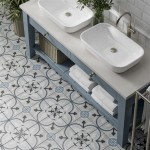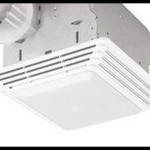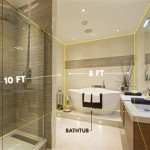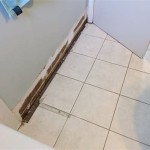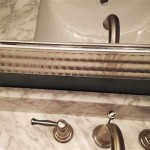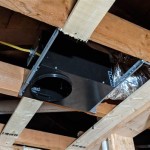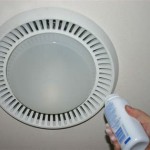How Much Does It Cost To Renovate A Bathroom In NJ?
Renovating a bathroom in New Jersey can significantly enhance a home's value and improve its functionality. However, the cost of such a project can vary widely depending on several factors. This article elucidates the key elements influencing bathroom renovation expenses in New Jersey, providing a comprehensive overview to help homeowners plan and budget effectively.
The total cost of a bathroom renovation in New Jersey is not a fixed amount. Instead, it is a culmination of expenses tied to materials, labor, the scope of the project, and unforeseen circumstances. It’s essential to understand these components to formulate a realistic budget and avoid potential financial surprises during the renovation process.
Factors Influencing Bathroom Renovation Costs in NJ
Numerous aspects contribute to the overall cost of a bathroom renovation. These factors range from the size of the bathroom to the complexity of the design and the quality of materials chosen. Understanding these influences is crucial for accurately estimating the expenses involved.
The size of the bathroom is one of the most significant determinants of cost. A larger bathroom requires more materials, more labor hours, and potentially more complex plumbing and electrical work. A small powder room renovation will naturally be less expensive than a complete overhaul of a master bathroom suite.
The scope of the project also plays a crucial role. A simple cosmetic upgrade, such as replacing a vanity and repainting the walls, will be considerably less expensive than a complete gut renovation that involves moving plumbing fixtures, reconfiguring walls, and installing new flooring. The depth of the renovation directly correlates with the amount of labor and materials required.
The type and quality of materials selected significantly impact the total cost. High-end fixtures, such as designer tiles, custom cabinetry, and premium faucets, will substantially increase the budget compared to standard or budget-friendly options. Material choices represent a significant portion of the overall expense, allowing homeowners to adjust costs based on their preferences and budget.
Labor costs fluctuate depending on the contractor's experience, the project's complexity, and the prevailing market rates in New Jersey. Highly skilled and experienced contractors typically charge more, but they can also offer better quality workmanship and reduce the risk of errors. It is recommended to obtain multiple quotes from different contractors to compare prices and services.
Permitting and inspection fees are often overlooked but are essential components of a bathroom renovation budget in New Jersey. Depending on the scope of the project, permits may be required for plumbing, electrical, and structural work. These fees vary depending on the municipality and the type of work being performed. Failing to obtain the necessary permits can result in fines and delays.
Unforeseen issues, such as hidden water damage, outdated plumbing, or electrical problems, can arise during the renovation process and add to the overall cost. It is prudent to allocate a contingency fund to cover these unexpected expenses. A contingency fund of 10-15% of the total budget is generally recommended to address any unforeseen problems that may occur.
Typical Cost Breakdown for Bathroom Renovations in NJ
Understanding the typical cost breakdown can provide a clearer picture of where the money is allocated during a bathroom renovation. This breakdown typically includes categories such as demolition, plumbing, electrical, carpentry, flooring, tiling, fixtures, and painting.
Demolition involves removing existing fixtures, flooring, and walls as needed. The cost of demolition can vary depending on the amount of material being removed and the complexity of the job. This can range from a few hundred to several thousand dollars, especially if hazardous materials like asbestos are present.
Plumbing costs cover the installation or relocation of pipes, drains, and fixtures. If the existing plumbing is outdated or needs to be reconfigured, the cost can increase significantly. Plumbing work should always be performed by a licensed plumber to ensure compliance with local codes and prevent leaks or other problems. Labor and materials can range from $1,000 to $5,000 or more, particularly if moving major fixtures like the toilet or shower is required.
Electrical work includes installing new wiring, outlets, and lighting fixtures. As with plumbing, electrical work should be performed by a licensed electrician to ensure safety and compliance with regulations. Electrical costs can range from $500 to $3,000, depending on the complexity of the wiring and the number of fixtures being installed.
Carpentry costs involve framing, installing drywall, and building custom cabinets or vanities. The cost of carpentry can vary depending on the complexity of the work and the type of materials used. Custom cabinetry will be more expensive than prefabricated options. Budget anywhere from $1,000 to $5,000+ depending on the extent of carpentry work needed.
Flooring is a significant component of the overall cost. Common flooring options for bathrooms include tile, vinyl, and stone. Tile is a popular choice due to its durability and water resistance, but it can be more expensive than other options. Flooring costs range from $5 to $20 per square foot for materials, plus installation costs which can range from $3 to $10 per square foot.
Tiling costs involve installing tile on the walls, floors, and shower surrounds. The cost of tiling can vary depending on the type of tile, the size of the tiles, and the complexity of the installation. Intricate patterns and larger tiles typically require more labor and increase the overall cost. Expect to pay between $7 and $25 per square foot for tile installation based on complexity and tile type.
Fixtures include toilets, sinks, faucets, showers, and bathtubs. The cost of fixtures can vary widely depending on the brand, style, and quality. High-end fixtures will significantly increase the overall cost. Fixtures can range from a few hundred dollars for basic models to several thousand dollars for luxury options.
Painting includes prepping the walls and applying paint or other finishes. The cost of painting can vary depending on the size of the bathroom and the type of paint used. Painting is often a DIY project to save money, but professional painting ensures a smooth and durable finish. Professional painting can cost between $200 and $1,000 depending on the size and condition of the bathroom.
Cost-Saving Strategies for Bathroom Renovations in NJ
While bathroom renovations can be expensive, there are several strategies homeowners can employ to reduce costs without compromising on quality. Careful planning, strategic material selection, and smart DIY projects can help keep the budget in check.
Prioritizing needs versus wants is crucial for staying within budget. Distinguish between essential upgrades and desirable features. Focusing on necessary improvements, such as replacing a leaky toilet or fixing damaged flooring, can help prioritize spending and avoid unnecessary expenses. A functional and updated bathroom can be achieved without splurging on every high-end item.
Retaining the existing layout of the bathroom can save a significant amount of money. Moving plumbing fixtures is one of the most expensive aspects of a bathroom renovation. Keeping the toilet, sink, and shower in their current locations minimizes the need for extensive plumbing work, reducing both labor and material costs.
Shopping around for materials and fixtures can uncover deals and discounts. Comparing prices from different suppliers, both online and in local stores, can help find the best deals on tiles, faucets, and other materials. Consider purchasing materials during sales events or looking for closeout items to save money, but ensure the quality meets the project requirements.
Consider undertaking some of the simpler tasks as DIY projects. Painting, demolition, and basic installation tasks can be handled by homeowners with some DIY skills. This can reduce labor costs and allow for more budget allocation toward higher-priority items. However, it is essential to leave complex tasks, such as plumbing and electrical work, to licensed professionals.
Repurposing or refinishing existing fixtures can be a cost-effective alternative to buying new ones. Refinishing an old bathtub or vanity can give it a fresh new look without the expense of replacement. Repurposing materials, such as using reclaimed wood for shelving, can add character and save money. This approach requires creativity and effort but can result in significant savings.
Choosing budget-friendly materials without sacrificing durability is important. Opt for durable and attractive alternatives to high-end materials. For example, ceramic tile can be a more affordable option than natural stone, while still providing a similar aesthetic appeal and good water resistance. Laminate flooring can mimic the look of hardwood at a lower cost. Researching budget-friendly but durable materials allows for cost savings without compromising the longevity of the renovation.
Obtaining multiple quotes from different contractors is crucial for finding the best price. Comparing quotes ensures a fair price for labor and helps identify potential cost savings. However, it is essential to consider the contractor's experience, reputation, and references, rather than solely focusing on the lowest price. A reputable contractor can provide quality workmanship and avoid costly mistakes.
Planning the renovation during the off-season can potentially lead to lower labor costs. Contractors may offer discounts during slower periods, such as late fall or winter. Scheduling the renovation during the off-season can also provide more flexibility in scheduling and project completion. Discussing potential scheduling discounts with contractors can help lower overall renovation expenses.
While these points provide a guideline, it's important to get direct, in-person estimates from contractors familiar with your specific renovation in order to get the most accurate understanding of the project's potential cost.

House Renovation Costs In New Jersey 2024 Sweeten

Bathroom Remodeling Costs In New Jersey 2024 Sweeten Com

Bathroom Remodeling Costs In New Jersey 2024 Sweeten Com

Bathroom Remodeling Costs In New Jersey 2024 Sweeten Com

Bathroom Remodeling Costs In New Jersey 2024 Sweeten Com

How Much Does A Bathroom Remodel Cost In New Jersey 2024

This Is How Much It Costs To Remodel Bathrooms In New Jersey

How Much Does Nj Bathroom Remodeling Cost Design Build Planners

Bathroom Remodeling Costs In New Jersey 2024 Sweeten Com

How Much Does Nj Bathroom Remodeling Cost Design Build Planners
Related Posts
